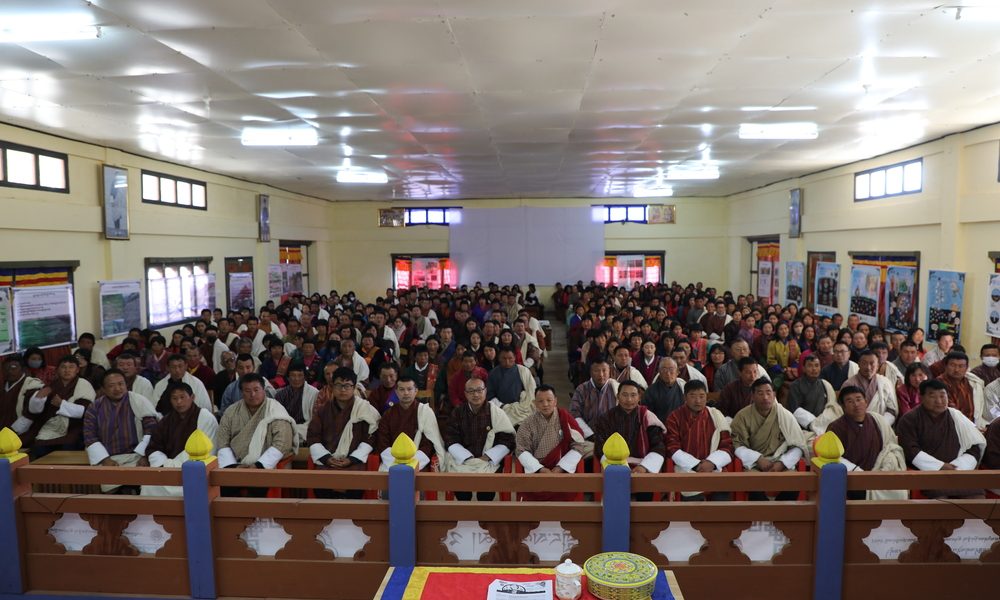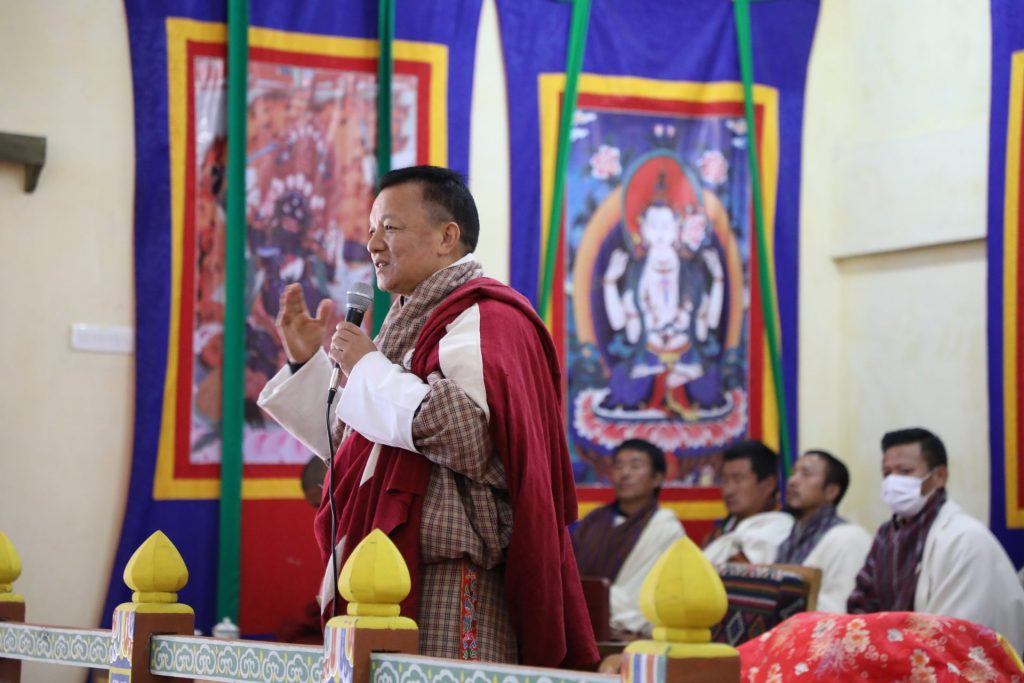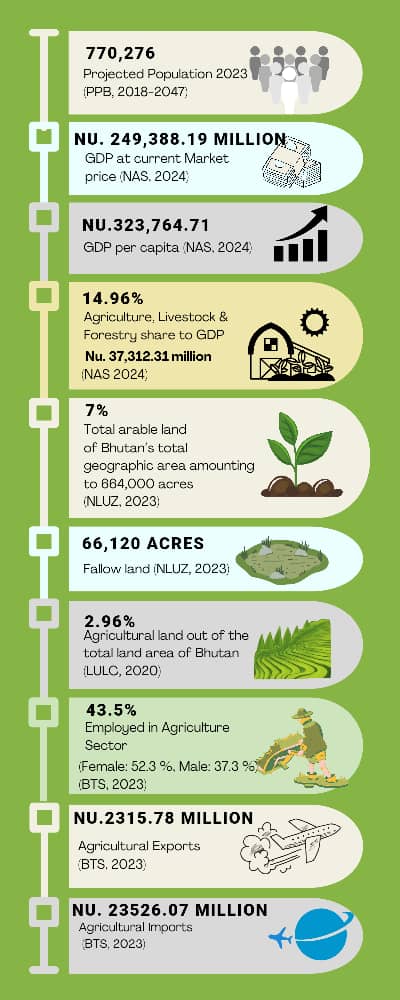5 December, Wangdue Dzongkhag: Bhutan observed the World Soil Day (WSD) 2020 with the theme “Soils: Where Food Begins” at Phobjikha gewog centre, under Wangdue Dzongkhag on 5th December 2022. About 362 participants from Gangtey and Phobjikha gewogs gathered at the event, which was graced by Wangdue Dzongdag, Dasho Sonam Jamtsho as the chief guest. Other invited guests included officials from Dzongkhag and gewog administrations and representatives from RSPN, Health, Forests, National Seed Farm and livestock centre who are based in the above two gewogs.
The main objectives of observing the WSD are:
- To take time to thank the soil and all that it provides.
- To salute our farmers and the landowners who are doing their part to protect and improve soil health for sustained food production and eco-system services.
- To educate people and raise their awareness on the issue of overuse of chemical fertilizers, its implications and best management practices.
- To urge individuals, agencies, policy makers, donors, NGOs, CSOs and private sector to recognize the importance of soil and play their role in advocating and promoting sustainable management of soil resources to ensure sustainable agri-food system, environment, biodiversity and climate.
Soils are foundation of agriculture and eco-system services. About 95% of our foods come from the soil. Our very existence depends on the soil! Yet, soil is most often taken for granted and it is perhaps the most neglected natural resources of all. We forget that almost everything either stem from soil or thrive on soil. We often fail to connect soil with our food, water, climate, biodiversity and life. Other reality is that soils are non-renewable resources in the human lifetime. We cannot replace all the soils that we lose. It can take up to 1000 years to form 2-3 cm of soil. Therefore, soil preservation is essential for food security and to ensure sustainable future. For soil to feed us, we need to feed them and take good care. Soils are essential to provide clean water and to adapt and mitigate climate change.
However, soil degradation is increasingly becoming a serious threat caused by various factors such as unsustainable agricultural practices including imbalance or inappropriate use of chemical fertilizers, steep slope cultivation, infrastructure development, and soil pollution through solid wastes, especially plastics. Globally, nutrient imbalance through overuse, misuse or underuse of chemical fertilizers has been identified as one of the top ten threats to soil health, with negative environmental, social and economic effects. In Bhutan, while the overall chemical fertilizer use is very low as compared to other countries, its demand and use has been increasing over the years due to changing farming system from traditional subsistence to semi-commercial, commercial and specialized farming.
Therefore, the honourable chief guest, in his opening remarks, reminded the gathering to make judicious use of the inputs to avoid serious consequential impact on soil health, food quality, local environment and biodiversity, water sources and the climate change. Dasho emphasised the importance of balanced fertilization through best fertilizer management practices and integrated plant nutrient management approach. Dasho also urged all the relevant stakeholders to play their part in advocating, promoting, educating and providing technical and funding support to farmers on sustainable soil management practices.
The WSD was officially adopted by the 68th session of the UN General Assembly held in December 2013 following the endorsement and request made by the Food and Agriculture Organization of the UN (FAO) Conference, in June 2013. The date of 5 December for WSD was chosen because it corresponds with the official birthday of H.M. King Bhumibol Adulyadej, the King of Thailand, who dedicated his entire life educating and helping his Thai farmers in promoting sustainable soil management practices.
The WSD 2022 was organized jointly by the National Soil Services Centre of the Department of Agriculture, MoAF and Wangdue Dzongkhag Administration with funding support from Land Degradation Neutrality (LDN) of the United Nations Convention to Combat Desertification (UNCCD). It has been a very successful event as it could sensitize more than 362 participants, largely potato growers of two gewogs who use chemical fertilizers more than the recommended rate. In fact, it was for this very reason that the day was observed in Phobjikha valley.
![]()





